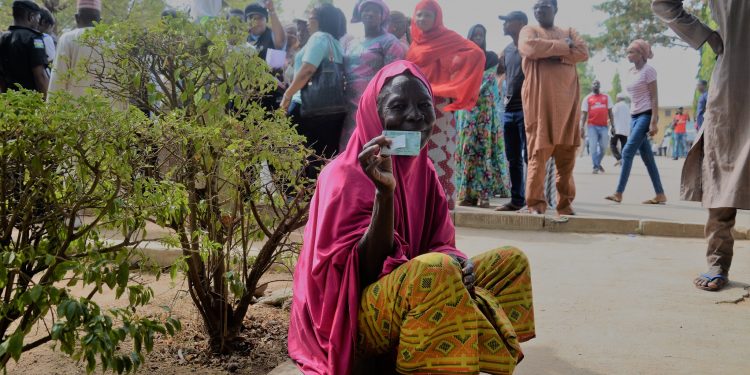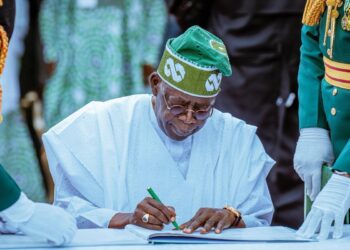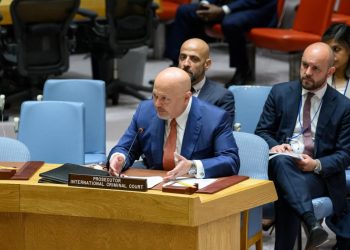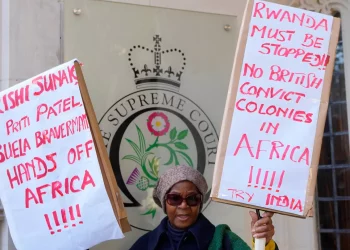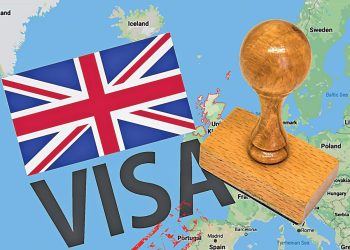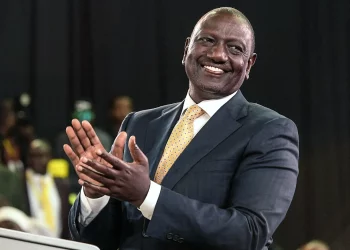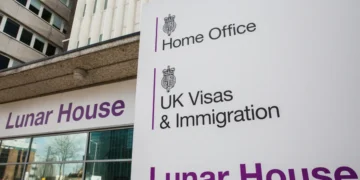The Nigerian electorates seems determined more than ever before to participate in deciding who becomes the next president of Nigeria come May 29, 2023. This is no doubt a welcome development for the nation’s democracy.
However, the electorates should have certain understanding at the back of their mind as we go to the polls next year.
One of such factors is that participation in elections though very important is not all there is to participatory governance.
In addition, participatory governance without a clear understanding of certain democratic characteristics may not engender the much needed development.
Another point to note is that if a turnaround of the economic well being of the people is not achieved within a given time frame, the populace may loose faith in the gains of participatory democracy.
The electorates must be tutored to understand that in a federal system of government, the power for change and good governance goes beyond the president.
Yes though the president in Nigeria is a major determinant, yet we must pay attention to the kind of persons that would emerge from the ballot to the red and green chambers in Abuja, especially if we produce a president that may defile the 4th republic wisdom of financial recklessness and poor performance.
Equally important to how development reaches the ordinary citizen in the remote regions of the country, is the kind of persons we elect to the government houses across the 36 states of the federation and the states Assemblies.
Of course from the states, we can begin a critical look at the Local Government level which hitherto has only gotten a cursory look even from the most critical of us.
This no doubt explains the sorry state of affairs and unbridled corruption and underdevelopment at that level; a direct consequences of not paying attention to those who govern at the LGAs.
Beyond the election of persons of character to positions of authority and governance, the people should be willing to participate in real governance; decision makings and implementations.
Of course, in today’s complex social formation, it could be naive to think of any method that will yield direct governance.
However, older democracies, in spite of this global challenge, have device means through which their citizens participate in governance beyond politicians. Things Nigerians must begin to take serious includes demanding for public hearings prior to passage of bills.
Though there have been public hearings in Nigeria concerning certain issues or bills, the majority of even the enlightened mass of the citizens hardly ever hear of such events so as to prepare for and attend it.
Public hearings as a matter of necessity should be well publicised and held at each senatorial district and federal constituency, after all, each of these representatives seek the opinion of their constituency and not a mere ritual.
At the state level and state legislation, public hearings should be conducted at state constituencies.
Citizens should begin to demand that policies of critical importance must be subjected to public scrutiny before been pursued, and indeed there is hardly a policy that is not relevant.
Citizens must demand that award of contract and employments must follow due process. This also should not end at a mere demand, a follow-up should be carried out to ensure the right things are done.
Citizens must begin to show more than a cursory interest to questions of public interest. Accountability and Transparency must become the minimum demand for players in the public space.
Those who cannot meet up with this demand should be encouraged and or democratically forced to quit the public arena even before the end of their tenure of office.
If there is any example of how public officer are accountable to the electorates, the British system comes to mind. For the British political system, accountability and transparency transcends pecuniary thinking and extends to morality, ideological and perhaps philosophical.
For example, between 2016 and now, the Brits have had two Prime Ministers and a third about to leave office before full term.
It is also important to note that none of them left office because of financial wrong doings. Rather they left office for reasons of divergence of opinion, and in the case of the outgoing Boris Johnson as a result of moral misconduct which can be seen as a betrayal of trust.
For the avoidance of doubt, let me remind us that David Cameron resigned from 10, Downing Street because the British people voted to leave the EU, against his desire of the UK remaining in Europe.
Also important to note is that the British people did not protest or ask him to leave. Neither was there a formal vote of no confidence against his government.
Again we should note that margin between those who voted to stay in Europe and the “Brexiters” was not wide (48.11 as against 51.81. A difference of 3.7)
However, that single digit difference made the PM to quit. Tell me, with the benefit of hindsight, how many Nigerian past leaders at different level would have resigned because of a less than 10% difference in ideology?
How many Nigerians would have demanded the resignation of her leader for been on the side of a failed campaign?
Nevertheless, Cameron had to make way for another person to lead UK out of Europe. David Cameron’s successor Theresa May came in with a major purpose to successfully lead the country out EU.
Here, “success” was defined as getting the best possible trade agreements between post EU Britain and the European Union.
However, by May 2019, Mrs May ate the humble pie and announced her resignation because her BREXIT plans has failed.
The above was in spite of reaching an agreement with the EU bloc on trade agreements, but MPs were opposed to a legislation that would have sealed the plans.
Can you imagine a Nigerian leader quitting for such a “little irritant?” maybe in the future we can have that.
Now by September 6th, 10 Downing Street will welcome a new tenant because the incumbent had a party while the government imposed COVID 19 lock down was on.
An ardent follower of the debate and events that culminated in his resignation last June cannot but admire the moral standards even the most morally backward Briton demands of his PM.
This is a sharp contrast to what we see here in Nigeria. Cast your mind back to the same COVID 19 lock down period in Nigeria, how did our public officials conduct themselves?
How many of them have been questioned over the palliative saga exposed largely by the ENDSARS protest?
How many people thought it a serious moral betrayal over the weddings and party organised by families of politicians while the rest of the populace observed social distance and kept in lock down?
How many moral scandals rock our social media each month?
In the race to replace Boris Johnson, Penny Mordant despite been promising and favourite earlier in the race, failed to make it to the last two to face the Conservative members, largely because of her unclear stands on transgender.
In the USA from where we borrowed our presidential system from, we remember how former President Clinton nearly lost his job on account of sexual misconduct that happened years before his ascension to the White House.
Just last year 2021, New York’s Governor Andrew Cuomo quit office after it was proved that there was sufficient evidence of sexual harassment against women who worked with him.
The point here is that accountability both morally and financially should be a big issue in public space.
Nigerians should begin to have a moral standard expected of public officials and demand they live up to it or quit our public space for good. It’s high time we began to ask our politicians to walk the talk.
It is high time we began to look at the records of those aspiring to public offices; their past moral and financial conducts. How do they live daily? What did they say on questions of national interest?
Also, not just what they said or did when elections are in view, but also what they said or did on national issues before their desire to govern became known.
To do the above would demand that we all find time to monitor the public space beyond the ritualistic voting once in four years.
It is when we have set these standards and demand officials live by it or quit that we may begin to experience accountability and transparency and the inherent development we desire.


